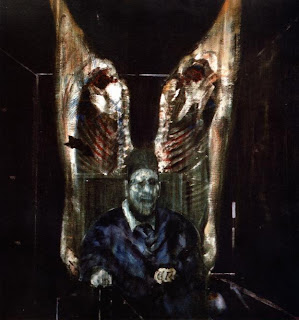
One of the most poignant comments from the German theologian Dietrich Bonhoeffer as he contemplated life in a Nazi prison for being an accomplice to an assassination plot to kill Hitler is when he says that he loves the Psalms; he read them daily. In addition, more importantly, he also notes that he read Job and that it obviously touched him deeply considering his present condition.
The idea of reading a Psalm a day as a devotional is something I have heard all my life. There are a plethora of commentaries and devotionals written to do such a thing. There is even an addition of the New Testament that charitably includes the Psalms in the back right behind Revelation (because everyone knows that's all a Christian really needs-FAIL).
I honestly think that Christians might be better served reading a daily dose of Job. A number of thinkers have brought out how crucial this book is. I will be looking for the next week on a number of interpretations on Job that I think will help us with our understanding of guilt.
One book I just started is Negri's book
The Labor of Job. Like Bonhoeffer, Negri turned to Job as he spent years in an Italian prison for being a subversive toward the Italian government. In that situation, he writes about how Job helped him reformulate his own positions in life. Moreover, like Bonhoeffer, Negri found in a Job a model for someone who is condemned as guilty by his peers even though he stands by his innocence. In fact, he aggressively proclaims his innocence toward his theologian friends and even in the presence of God just like Bonhoeffer and Negri did against the powers that be.
Perhaps the Psalms are not that far away from Job in that there are a number of Psalms where the Psalmists cries out to God for protection against both verbal and physical violence especially because he speaks from a position of innocence. Did not St. Paul say if God is for us, who can be against us? That we no longer have an accuser because we have an advocate with Christ? I think these words of course ring true about our reconciliation with God in Christ but I would also say that when we are unjustly accused in any facet of life we have the freedom like Job, Bonhoeffer and Negri to say we are innocent!







